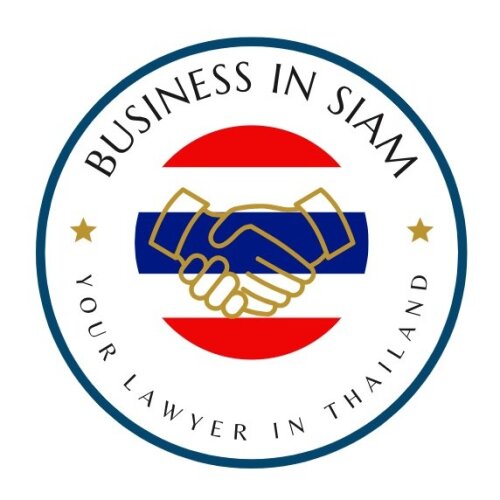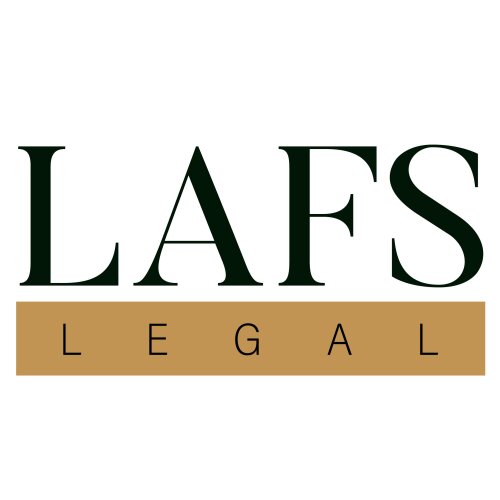Best Office Solutions Lawyers in Thailand
Share your needs with us, get contacted by law firms.
Free. Takes 2 min.
Or refine your search by selecting a city:
List of the best lawyers in Thailand
Legal guides written by SIAM LEGAL INTERNATIONAL:
- Defamation Laws in Thailand: Criminal Charges and Civil Suits
- The State of Thailand’s Long-Term Resident (LTR) Visa Program in 2025
- The Penalties Of Not Filing Your Income Tax Return As A Foreigner In Thailand
Legal guides written by Smart Legal Solutions:
- Main Legal Measures to Protect Foreign Investment in Thailand
- The importance of the geographical indications for the Thai economy
About Office Solutions Law in Thailand
Office Solutions in Thailand involves a range of services, including leasing office space, establishing co-working environments, and ensuring compliance with business, safety, and employment regulations specific to office operations. As Thailand continues to expand its role as a regional business hub, particularly in cities like Bangkok, Chiang Mai, and Phuket, the demand for professional office solutions has grown. The legal aspects encompass various elements such as lease agreements, intellectual property, and adhering to workplace standards dictated by both local legislation and international business practices.
Why You May Need a Lawyer
There are numerous situations in which engaging a lawyer specialized in office solutions may be essential. These can include negotiating complex lease agreements, understanding the implications of commercial property law, ensuring compliance with employment laws for employees within an office environment, and resolving disputes with landlords or service providers. Additionally, given Thailand’s legal system's nuances, having local legal expertise can be critical in navigating bureaucratic requirements and ensuring that your office operations comply with all relevant regulations.
Local Laws Overview
Key aspects of local laws in Thailand relevant to Office Solutions include:
- Commercial Lease Law: Governs the terms under which businesses can rent office spaces, including tenant and landlord rights.
- Labor Laws: Oversees employee rights, workplace safety, and employment contracts to ensure a compliant work environment.
- Intellectual Property Law: Protects the business's creative and proprietary intellectual assets within office settings.
- Data Privacy Regulations: Ensures offices adhere to personal data protection laws which are becoming increasingly important in Thailand.
- Zoning and Building Codes: Regulations that dictate where offices can be located and requirements related to the physical office setup.
Frequently Asked Questions
What is the process for leasing office space in Thailand?
Leasing office space typically involves identifying a location, negotiating lease terms, and ensuring the agreement complies with local laws. This often requires the expertise of a commercial real estate lawyer.
Do lease agreements differ significantly from residential leases?
Yes, commercial lease agreements are usually more complex, with provisions relating to business operations, maintenance responsibilities, and zoning laws that are not present in residential leases.
How can I ensure my office complies with Thailand's employment laws?
Compliance can be ensured by understanding local labor laws, maintaining fair employment practices, and consulting with legal professionals to stay updated on changes in labor regulations.
What are the protections available for businesses under intellectual property law?
Businesses can protect trademarks, patents, and copyrights. Legal counsel can help navigate registration procedures and enforce these protections legally.
Are co-working spaces subject to different laws than traditional office leases?
While co-working spaces might operate under different agreements, they must comply with the same overarching commercial property and labor laws as traditional offices.
What should I include in an office lease agreement?
Key components include the rental cost, lease duration, renewal options, maintenance responsibilities, and specific clauses for early termination or disputes.
Who can be held liable for safety infringements in an office?
Both property owners and tenants can be liable depending on the specific circumstance. Compliance with safety regulations can mitigate these risks.
What legal steps should I take if I've been wrongfully evicted from my office space?
Engage a legal professional to review the lease agreement, gather evidence, and represent your case to seek remedial action or compensation.
How do zoning laws affect where I can set up an office?
Zoning laws determine the areas designated for business activities. It’s crucial to consult with a lawyer to ensure the intended location is legally permissible for office operations.
Can a foreign business owner rent office space in Thailand?
Yes, but they must comply with additional regulations concerning foreign-owned entities. Legal guidance can help navigate these requirements and secure the necessary permits.
Additional Resources
Several resources, governmental bodies, and organizations can provide further assistance:
- Department of Business Development: Offers resources for business registration and compliance standards.
- Thailand Board of Investment (BOI): Facilitates investment opportunities and provides guidelines for foreign investors.
- Legal Associations: Contact local legal associations for referrals to qualified professionals in office solutions law.
- Commercial Real Estate Firms: Many firms provide consultancy services for negotiating office leases and understanding property laws.
Next Steps
If you require legal assistance in office solutions, consider the following steps:
- Identify Your Needs: Clearly define what legal aspects you need assistance with, whether it’s a lease negotiation, compliance, or dispute resolution.
- Research Legal Professionals: Look for attorneys or firms specializing in commercial property and office solutions law in Thailand.
- Consultation: Arrange consultations to discuss your specific situation and get advice on proceeding with any legal actions.
- Review and Negotiate: Work with your legal advisor to review agreements, negotiate terms, and ensure compliance with all relevant regulations.
- Continuous Compliance: Regularly seek legal updates to remain compliant with evolving laws and regulations in Thailand.
Lawzana helps you find the best lawyers and law firms in Thailand through a curated and pre-screened list of qualified legal professionals. Our platform offers rankings and detailed profiles of attorneys and law firms, allowing you to compare based on practice areas, including Office Solutions, experience, and client feedback.
Each profile includes a description of the firm's areas of practice, client reviews, team members and partners, year of establishment, spoken languages, office locations, contact information, social media presence, and any published articles or resources. Most firms on our platform speak English and are experienced in both local and international legal matters.
Get a quote from top-rated law firms in Thailand — quickly, securely, and without unnecessary hassle.
Disclaimer:
The information provided on this page is for general informational purposes only and does not constitute legal advice. While we strive to ensure the accuracy and relevance of the content, legal information may change over time, and interpretations of the law can vary. You should always consult with a qualified legal professional for advice specific to your situation.
We disclaim all liability for actions taken or not taken based on the content of this page. If you believe any information is incorrect or outdated, please contact us, and we will review and update it where appropriate.
Browse office solutions law firms by city in Thailand
Refine your search by selecting a city.

















